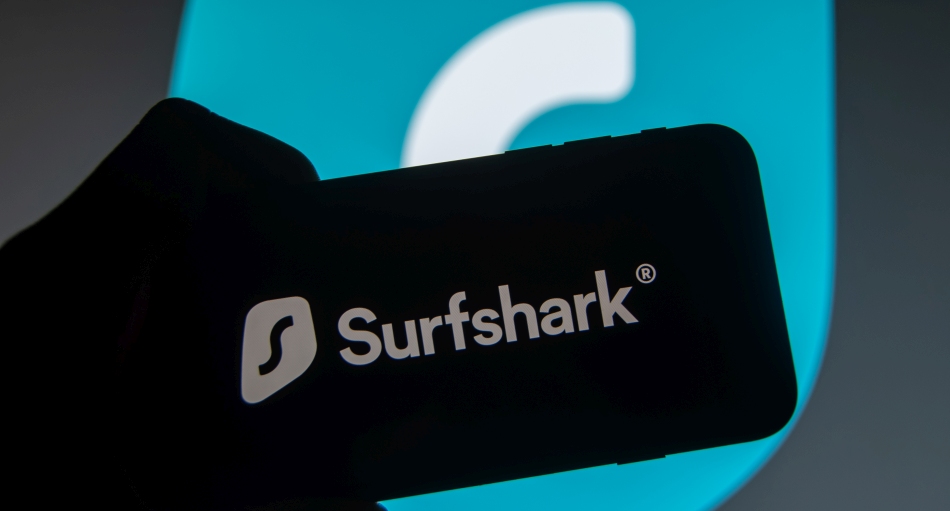
Surfshark has now launched a free, privacy-focused public DNS service, offering users an alternative to ISP-controlled DNS systems that typically track and monetize browsing data.
The company’s new DNS infrastructure prioritizes anonymity, speed, and secure connectivity with no user activity logs and support for encrypted protocols like DoT, DoH, and DoQ.
According to Surfshark’s Leading System Engineer, Karolis Kaciulis, this initiative reflects the product’s ongoing commitment to digital privacy and aims to address growing concerns about the surveillance practices of internet service providers and large tech firms. In a press release shared with CyberInsider, Kaciulis emphasized that Surfshark’s DNS server does not collect or store browsing histories, DNS queries, or any metadata, making it ideal for privacy-conscious individuals, NGOs, and organizations.
Surfshark DNS functions like any traditional DNS resolver, converting user-friendly domain names into IP addresses that systems can process. However, unlike most public or ISP-provided DNS servers, Surfshark’s infrastructure routes queries without logging them, supports encrypted communication, and offers geo-optimized resolution for faster and more stable browsing.
Surfshark, headquartered in the Netherlands with offices in Lithuania and Poland, is known for its suite of privacy tools, including its independently audited VPN, antivirus, and identity protection services. With this launch, it adds DNS infrastructure to its growing portfolio of consumer and enterprise-focused privacy tools.
The new DNS offering uses IP addresses 194.169.169.169 (IPv4) and 2a09:a707:169:: (IPv6), along with a DNS-over-HTTPS endpoint at https://dns.surfsharkdns.com/dns-query. Users can manually configure their devices or routers to use these addresses and immediately benefit from enhanced privacy and potentially better connection speeds.
While Surfshark DNS boosts privacy, the company acknowledged that traditional DNS queries are vulnerable to interception. To mitigate this, the service supports encrypted DNS protocols that prevent DNS traffic from being read or altered by intermediaries on the network.
Kaciulis also noted that Surfshark plans to subject its DNS service to an independent audit, similar to its 2023 VPN audit, reinforcing transparency and trust in its privacy guarantees.
For instructions on how to set up Surfshark DNS on various operating systems or at the router level, check this guidance page.
Setting Surfshark DNS at the router level ensures that all devices connected to your network automatically benefit from private and encrypted DNS resolution. It also simplifies management by eliminating the need to configure each device individually.
Note that you don’t need an active Surfshark subscription to use Surfshark DNS, as the service is completely free.







Surfshark DNS doesn’t seem to work everywhere. What are some other recommended, free DNS servers for different areas of the world, which offer similar privacy, security and speed? Thanks.
DoT address is simply (for Android Private DNS):
dns.surfsharkdns.com
And if you do linux config via resolved:
dns=194.169.169.169#dns.surfsharkdns.com
It’s good to see discussion between writer and readers! Not so important but just want to add I think AdGuard is first because AdGuard is also VPN company although VPN comes later than adblocker and DNS. Second, no account needed for DNS so free and easy for public. But anyway who’s first no important, hope you can mention the rest in article, thanks Alex.
Good points on AdGuard, Enrique.
Control D for the win…
I think AdGuard is first.
Hi Enrique, yes, I agree AdGuard (ad blocker) offered a privacy-focused DNS for free, but I noted this is the first VPN provider to do so.
Update/edit: Windscribe also offers a similar service, therefore I have deleted any mention of Surfshark being the “first” in the article. Thanks for the feedback.
Wrong. WIndscribe offers Control D in free and premium versions. The free version is more aggressive than AdGuard.
Great. I’ve edited the article to remove “first”. Thanks for your feedback.
What do you mean they are first? Mullvad has had this for literally half a decade.
Do you have a source for this?
pretty sure they’re talking about this
https://mullvad.net/en/help/dns-over-https-and-dns-over-tls
(I’m not the original commenter, Henry, but I am a big fan of Mullvad)
They promote DoT, but what is DoT address actually? It’s not told on websites.